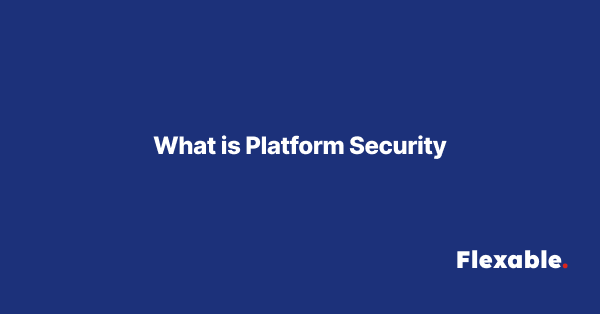In the freelancing industry, platform security refers to the measures and protocols implemented by freelancing platforms to ensure a safe and reliable environment for freelancers and clients to collaborate. It involves safeguarding user data, financial transactions, communication channels, and project details from unauthorized access, fraud, and cyber threats. Platform security is crucial for fostering trust between users and creating a professional, secure space for freelancing activities.
Why is Platform Security Important in Freelancing?
Freelancing platforms act as intermediaries, connecting clients and freelancers worldwide. Given the global nature of freelancing, these platforms handle sensitive information such as payment details, personal data, and intellectual property. Platform security ensures that this information is protected from risks like hacking, identity theft, and fraud.
Key reasons why platform security is essential include:
- Data Protection: Safeguarding personal and financial information from unauthorized access.
- Fraud Prevention: Protecting users from scams, fake profiles, and fraudulent transactions.
- Maintaining Trust: A secure platform builds credibility and encourages long-term use by freelancers and clients.
- Compliance with Regulations: Adhering to global data protection laws like GDPR (General Data Protection Regulation) or PCI DSS (Payment Card Industry Data Security Standard).
Core Elements of Platform Security
- User Authentication and Verification
Secure freelancing platforms require robust authentication processes, such as multi-factor authentication (MFA), to verify user identities. Some platforms also conduct background checks or identity verification to ensure that profiles are genuine. - Data Encryption
Encryption protocols ensure that sensitive information, such as communication and payment details, is securely transmitted and stored. This prevents unauthorized parties from accessing confidential data. - Secure Payment Gateways
Reliable freelancing platforms use secure payment systems to process transactions. These systems often include escrow services that hold funds until project milestones are completed, ensuring payment protection for freelancers and work guarantees for clients. - Fraud Detection Systems
Advanced algorithms and machine learning are used to detect suspicious activity, such as fake profiles, unusual transaction patterns, or phishing attempts. - Access Controls
Platforms implement strict access controls to restrict unauthorized users from accessing certain data or functionalities. This ensures that only authorized parties have access to specific project files, conversations, or payment details. - Communication Safety
Freelancing platforms provide secure communication channels to protect conversations from being intercepted or manipulated. Some platforms discourage sharing contact details off-platform to reduce risks of fraud or scams.
Benefits of Platform Security for Freelancers and Clients
- Peace of Mind
Freelancers and clients can focus on their projects without worrying about the safety of their data or payments. - Trustworthy Environment
A secure platform fosters trust, encouraging more users to engage in freelancing opportunities confidently. - Reduced Risk of Fraud
Effective platform security minimizes the chances of falling victim to scams or fraudulent activities. - Dispute Resolution Support
Secure platforms often include systems for managing disputes, ensuring fair outcomes for both parties.
Common Security Threats in Freelancing Platforms
- Phishing Scams
Fraudulent messages or links designed to steal sensitive information from users. - Fake Profiles
Scammers may create fake freelancer or client accounts to deceive users. - Data Breaches
Unauthorized access to user data due to weak security measures. - Payment Fraud
Clients refusing to pay after receiving work or freelancers failing to deliver after receiving payment. - Malware and Viruses
Harmful files or links that can compromise user devices and data.
Best Practices for Users to Enhance Security
While platform security provides a solid foundation, freelancers and clients should also take proactive steps to ensure their safety:
- Use Strong Passwords: Create unique passwords for your freelancing accounts and update them regularly.
- Enable Two-Factor Authentication (2FA): Add an extra layer of security to protect your account from unauthorized access.
- Avoid Off-Platform Transactions: Keep all payments and communication within the platform to benefit from security features and protection policies.
- Be Cautious of Suspicious Links: Avoid clicking on links or downloading files from unknown sources.
- Verify Client/Freelancer Profiles: Check for reviews, ratings, or verified badges to ensure the authenticity of the user.
Conclusion
Platform security is the backbone of a safe and trustworthy freelancing environment. It ensures the protection of sensitive data, prevents fraud, and fosters confidence among users. While freelancing platforms continuously enhance their security measures, freelancers and clients must also play their part by following best practices and staying vigilant. Together, these efforts create a secure ecosystem that enables seamless collaboration and professional growth in the freelancing industry.

